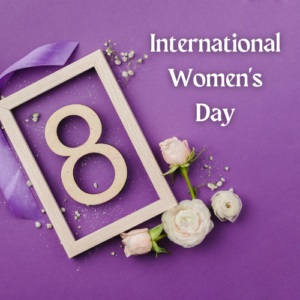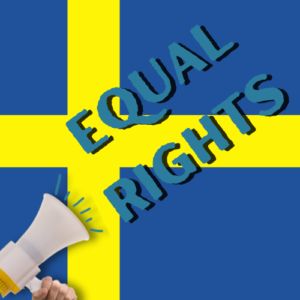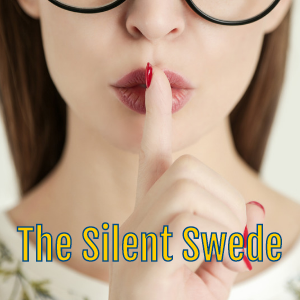International Women’s Day
This week, on March 8, is international women’s day and that got me thinking…
Sweden is often said to be one of the most gender-equal countries in the world, but what does that stand for?
Today we are taking a look at gender equality in Sweden and what that means.

Sweden in the EU (European Union) Gender-Equality Index
Sweden is a member of the EU and we are starting today’s episode by taking a look at the yearly gender-equality index from 2021. The data in this report is mostly from 2019.
Sweden ranks #1 in this index with a score of 83.9 out of 100.
The index is divided into different domains, and let’s take a look at some of them.
Work
Work measures whether women and men can benefit from equal access to employment and good working conditions. Sweden scored 83.1
Money
This domain measure genders inequality in access to financial resources and women’s and men’s economic situation. Sweden scored 85.4
Knowledge
In knowledge, they measured gender inequalities in educational attainment, participation in education and training over the life course, and gender segregation. Sweden scored 75.2
Time
Time measures inequalities in the allocation of time spent doing care and domestic work and social activities. Here Sweden got a score of 90.1
Power
In this domain, they take a look at gender equality in decision-making positions across the political, economic, and social spheres. 84.5 was Sweden’s score.
Health
The health domain measure three areas; health status, health behavior, and access to health services. The total score for Sweden here was 94.6 and for the respective area the score was
health status 96.4
health behavior 89.3
access to health services 98.2

Sum up of the EU gender-equality index
Sweden ranked at position number 1 in the EU gender-equality index. The highest domain was in health where they ranked as #1 with 94.6 out of 100. The lowest rank, and the most room for improvement, was in the knowledge domain where they got a score of 75.2 although this still ranks them as #1 within the EU countries. The most improved area was in Power while they dropped in Money.
But why does Sweden rank so high when it comes to equality?
The long history of equality
Sweden has a long history of prioritizing questions of equality.
Already in 1718 women in Sweden were offered suffrage in local elections. In 1842 girls getting access to schools that prior were restricted for boys only. Women in Sweden gained full voting rights in 1919, and in 1938 we got the first legislation about birth control and abortions. In 1955 women got three months of maternity leave, and today parental leave has increased to 480 days with 90 of those reserved for the father. Gender discrimination in the workplace has been illegal since 1980.

Today and forward
There is still work to be done when it comes to things like equal pay for equal work. If the choice of profession and sector is taken into account women still just get 95.6% of the monthly salary compared to their male colleges.
When it comes to work and family we can find some positive aspects, not just when it comes to parental leave. Childcare is guaranteed to all parents with the aim to make pre-school affordable for all. Schools, from elementary to College, are free for all Swedish citizens.
When it comes to sexual crimes and violence against women, Swedens 2018 law about sexual consent states that sex without explicit consent is rape.
I will come back to the topic of equality in different ways in my upcoming episodes during March where I will talk about
– the average Swedish family
– work-life balance in Sweden
– Sweden’s national minorities
I am also planning an episode later this spring about who learns the Swedish language and why? Thank to a listener, Alex Wang, who suggested the topic. Thanks, Alex, and I look forward to talking more with you about this topic.
If you have any topic ideas you can do what Alex did and send me an email to pixelpia@aswedishfika.com, or maybe you are learning Swedish and would like to share some of your experiences with me for the upcoming episode? Just send me an email.
Until next time, as we say in Sweden, Hej Då!




